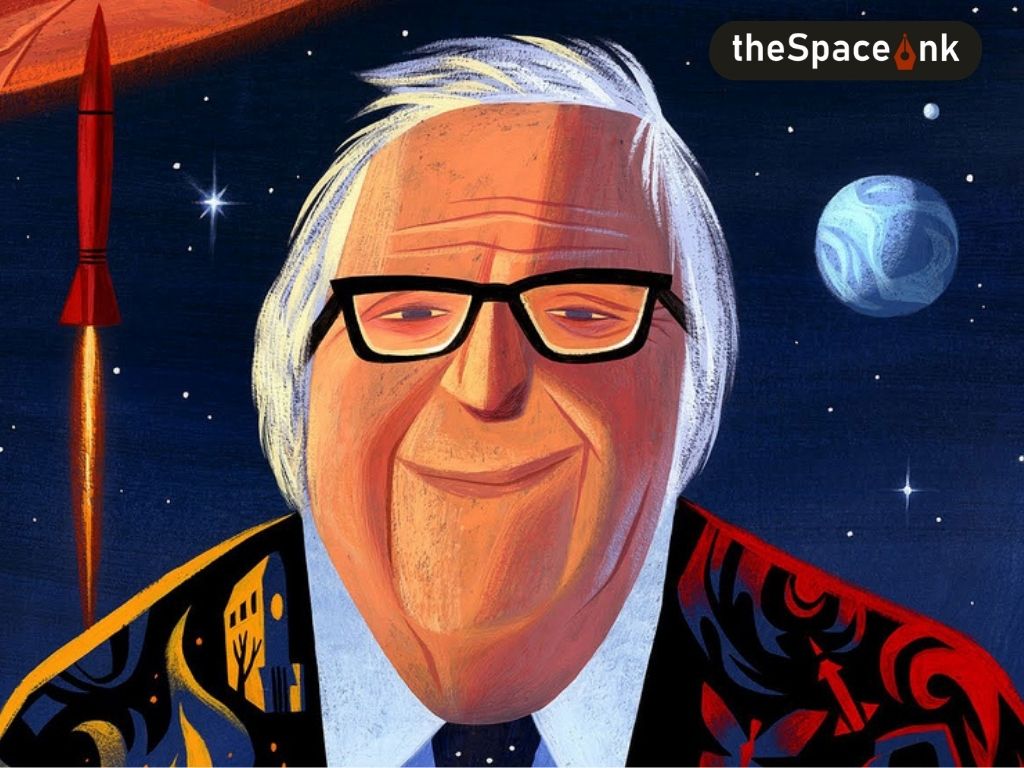(Ray Bradbury)
‘Stuff your eyes with wonder…live as if you’d drop dead in ten seconds. See the world. It’s more fantastic than any dream made or paid for in factories.’ — Ray Bradbury
My first encounter with Ray Bradbury took place when I was fourteen years old. Back then I was just another starry-eyed kid on the block—simple and highly impressionable. However, yours truly had one redeeming quality. I was a voracious reader, and used to frequently visit the local library with the intent of binging on genre-fiction books. And one rainy July evening, my efforts paid off big time as I found myself in front of a dusty, cramped-up bookshelf with a thick crown-sized paperback in my hands. (Ray Bradbury)
Also Read: 76 YEARS OF GEORGE ORWELL’S 1984
One glance at the slightly worn and discolored cover, and I knew I had struck gold. The title of the ‘Bantam’ published tome was Tomorrow’s Children; it was a science fiction anthology edited by one of the legends in the field, Isaac Asimov. The collection contained eighteen spectacular stories by some of the finest craftsmen of SF, and by sheer chance, the first offering that I sat down and chose to read was Bradbury’s All Summer in a Day. (Ray Bradbury)
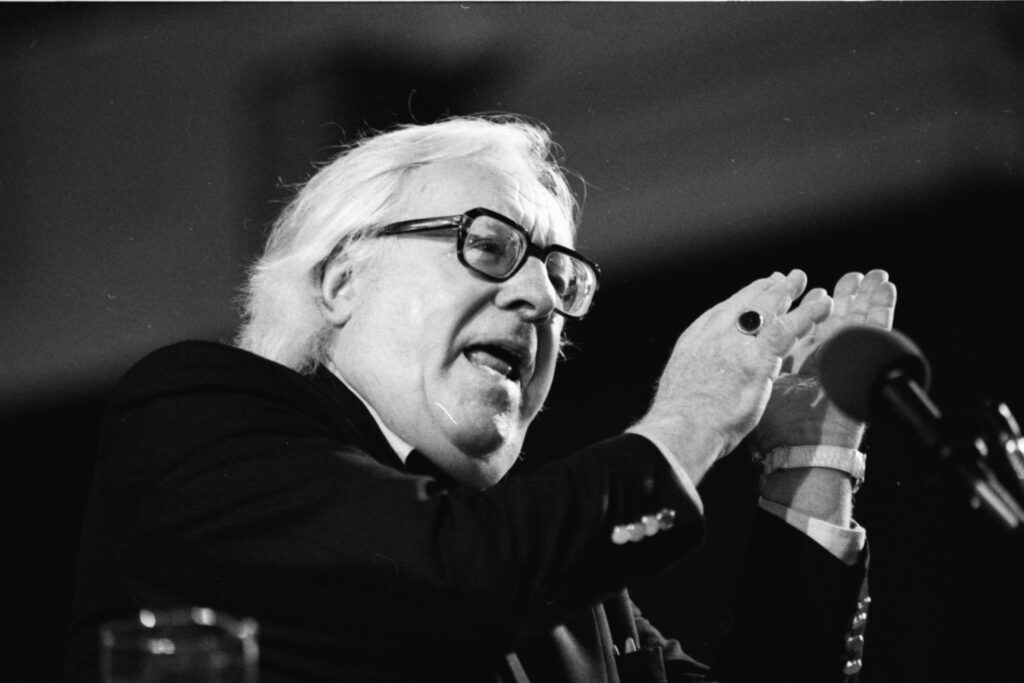
It was an amazing yarn—an intense mood piece with a shockingly somber ending! I basked in its afterglow for hours, and at the same time, felt a thousand pinpricks at the back of my throat. It seemed like my thoughts were no longer my own—they were fully centered on the afternoon spent by a little girl on the planet Venus, waiting for the sun to appear after years of torrential rainfall, and the misfortune that befell her. (Ray Bradbury)
It has been more than two decades since, and in the meantime, I have made myself familiar with more of his work. Yet All Summer in a Day remains with me, and so does Bradbury. I now know for a fact that when it came to tugging at the chords of one’s heart with mere words and sentiments, he was second to none. And every time I go back to him and the first story of his that I had read, I am reminded of something wonderful, and at the same time, gut-wrenchingly tragic. (Ray Bradbury)
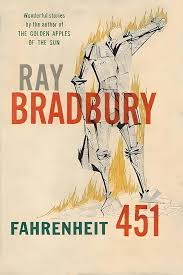
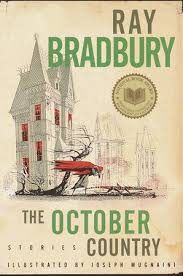
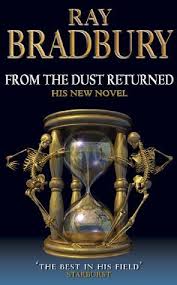
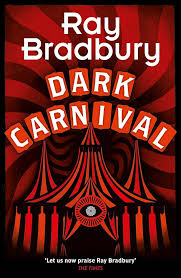
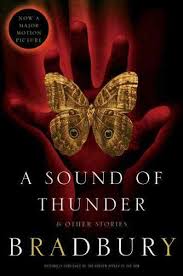

Ray Bradbury started his writing career in 1940, a year notable in pulp history for marking the well-justified demise of the ludicrous space monster and villainous scientist sagas that had run riot throughout the ‘30s. Hard SF’s champion, John W. Campbell, had taken full control of Astounding Science Fiction, and was demanding that his dedicated horde of writers (many of whom, including Asimov, Robert. A. Heinlein, A.E. Van Vogt and Henry Kuttner, later went on to become stalwarts in the field) come up with superlative, cerebral tales every time they sat in front of the typewriter. (Ray Bradbury)
Campbell’s contempt for science fiction which dealt primarily with human emotions was, by then, a well-known fact, and Bradbury, the proverbial square peg in the round hole who had nothing to offer to the genre except raw feelings, did not even stand a chance of survival, let alone of making it big, with Astounding. (Ray Bradbury)
“One fine morning the world woke up to discover that Bradbury, somehow jumping high over the heads of John Campbell and his knights, had managed to land far outside the micro-sphere of the pulps.”
Bradbury, though, was undeterred. He kept on writing his kind of mellifluous tales, and carefully garnished them with speculative fiction tropes to enhance their salability. The results were impressive enough, and as he was a dab hand at penning horror and dark fantasy as well, lesser-known magazines like Weird Tales and Planet Stories started accepting his work on a regular basis. (Ray Bradbury)
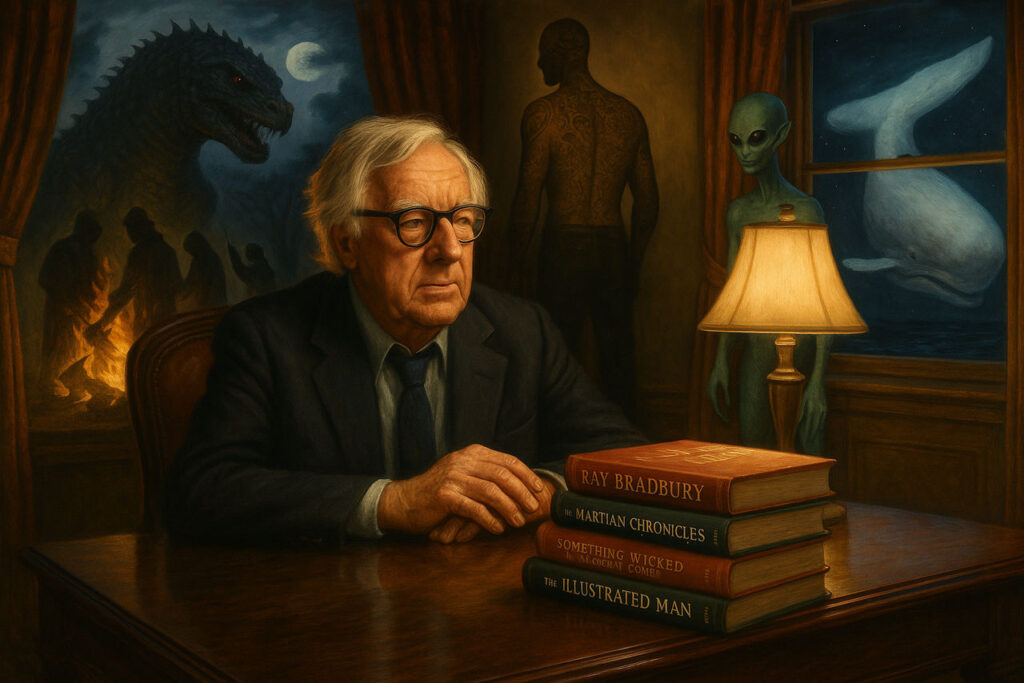
He wrote on prodigiously, following a tight schedule of one story every week (to pay the rent and meet his day-to-day expenses), and soon gained a following both in and outside the SF circle. Then one fine morning the world woke up to discover that Bradbury, somehow jumping high over the heads of John Campbell and his knights, had managed to land far outside the micro-sphere of the pulps. It was a shock for everyone—the lowly writer had inexplicably elevated himself to the big-league! (Ray Bradbury)
“Contrary to popular beliefs, Bradbury was not contemptuous of science; he was willfully apathetic towards it.”
In a flurry, Ray Bradbury’s work started appearing in high-brow periodicals like Esquire, Harper’s Bazaar and The Saturday Evening Post. The mainstream critics were quickly enamoured with him, because he was everything the other pulp writers were not. His tone was mesmerizing (‘…now there was only the sun and the sun and the sun. It was every horizon, it was every direction. (Ray Bradbury)
It burned the minutes, the seconds, the hourglasses, the clocks; it burned all time and eternity away.’ – The Golden Apples of the Sun), his philosophy was awe-inspiring (‘Everyone must leave something behind when he dies, my grandfather said….Something your hand touched some way so your soul has somewhere to go when you die, and when people look at that tree or that flower you planted, you’re there.’ – Fahrenheit 451), and his prose, replete with poignant similes and metaphors, had the lyrical quality of a ballad (‘The first concussion cut the rocket up the side with a giant can opener. (Ray Bradbury)
Also Read: Detective Fiction Through the Ages
The men were thrown into space like a dozen wriggling silverfish. They were scattered into a dark sea; and the ship, in a million pieces, went on, a meteor swarm seeking a lost sun.’ – Kaleidoscope).
The writing on the wall was clear; Bradbury was indeed ‘a great and unusual talent’. Way more accessible than the Aimovs and Heinleins, he shone as the beacon of light for the literary-minded readers of America—folks who did not care much for brain-bursting, ultra-innovative SF, but could easily tell apart classy pieces from mediocre ones, and relate wholly to the undisguised warmth and candor that Bradbury brought to the table. (Ray Bradbury)
“Not unlike the 19th century romantics, his distrust for technology stemmed from fear—the fear of a technology-dominated world where big, soulless machines threatened the innocence of childhood.”
The science fiction purists have nurtured a less than enthusiastic view of Ray Bradbury. Criticizing his tales for their flowery prose, excessive nostalgia and lack of scientific detailing, they have left no stone unturned in portraying him as an irreverent upstart, or worse, an undeserving outsider who accidentally made it big in SF. Frankly, all they have done is waste their breaths. Contrary to popular beliefs, Bradbury was not contemptuous of science; he was willfully apathetic towards it. (Ray Bradbury)
Not unlike the 19th century romantics, his distrust for technology stemmed from fear—the fear of a technology-dominated world where big, soulless machines threatened the innocence of childhood; the fear of giving in to materialism and losing what it means to be human. He never consciously intended to write science fiction, and with the sole exception of the dystopian novel Fahrenheit 451, probably did not write any. As a close reading of The Martian Chronicles and The Illustrated Man tells us, Bradbury’s main subject was humanity, and whenever he made an honest effort to dissect the nature of man, his voice sounded the most sincere. (Ray Bradbury)
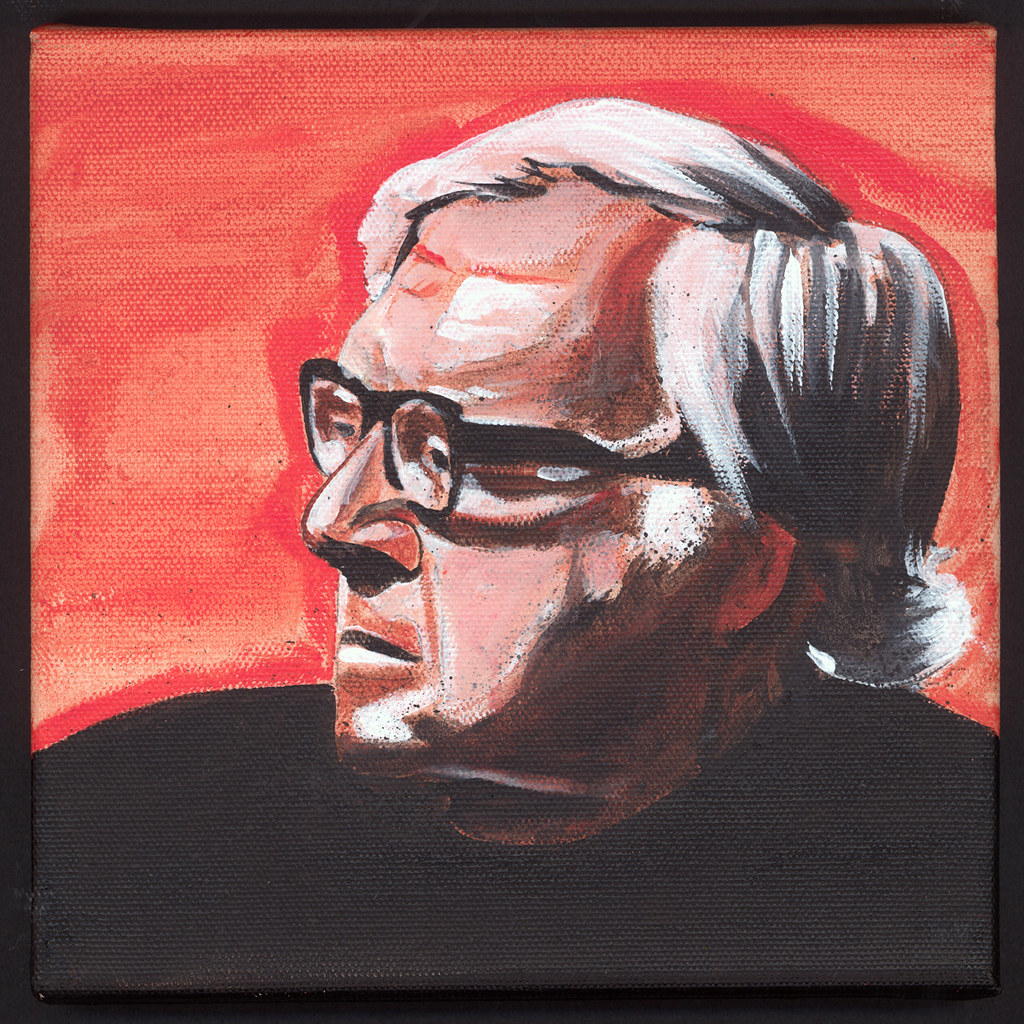
Like any other writer, Ray Bradbury also had his foibles, among which the tendency of overdoing the figures of speech, getting carried away while using the fantastic as a vehicle for moralistic preaching, sketching the occasional cardboard characters, and obsessing over a virtually non-existent past often stood out. But they did not diminish the significance of his oeuvre in any way; instead accentuated his many qualities as a top-grade practitioner of speculative fiction. (Ray Bradbury)
As the renowned writer and critic Damon Knight so succinctly put it, Bradbury’s strength lay not so much in his style or technique, but in the fact that he wrote about things that were of vital importance to us—‘…the rage at being born; the will to be loved; the longing to communicate.’ (Ray Bradbury)
Bradbury’s creations allowed us to see the idiosyncratic universe bathed in myriad vibrant colours—a feat that very few SF writers have managed to replicate. That, precisely, is why Ray Bradbury is read even today, not just in the US, but all over the world. To some, he is the true heir to Poe and Hawthorne; to others, the last of the urban bards. 13 years have elapsed since Bradbury’s passing in 2012, yet his imagery remains vivid, his mythopoetic parables achingly beautiful, and his wonder-evoking tales as melancholic as ever. (Ray Bradbury)
On 22nd August, 2025, admirers everywhere will be commemorating Ray Bradbury’s 105th birth anniversary with due fanfare. Upholding the spirit of celebration, I would also like to raise a toast to the magic-weaver from Waukegan, Illinois. Happy birthday, Mr. Bradbury, and thank you for those fascinating journeys through time, space and soul! (Ray Bradbury)
Image Courtesy: Wikimedia Commons, Flickr, Devian Art, Flickr
Souvik Chakraborty, by profession a mid-level manager at Steel Authority of India Ltd., has, since his early days, been a voracious reader of both literary and popular fiction. Till date he has edited eight acclaimed anthologies in English, and a handful in Bengali as well. When not busy collating stories, Souvik likes to try his hand at penning poems and speculative yarns, and over the past few years, has contributed a number of short pieces to various renowned periodicals. He loves playing the guitar, and his hobbies include listening to rock music and watching thriller movies.


